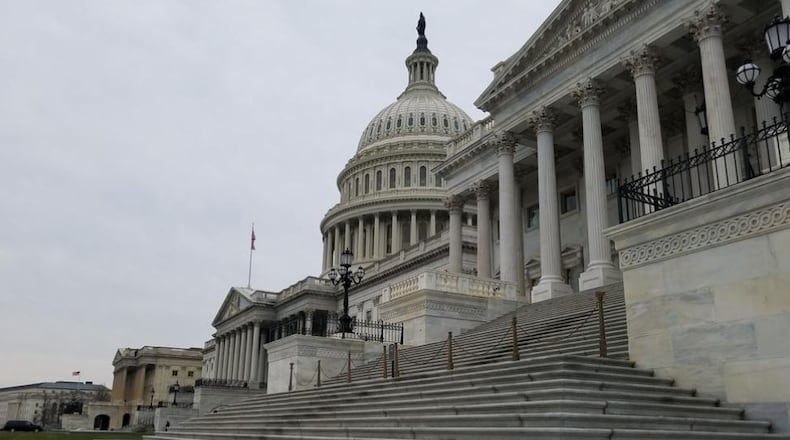Ratcheting up the level of conflict between Democrats in Congress and the White House, the Senate has officially returned dozens of nominations made this year by President Donald Trump, which will force the Trump Administration to go through the process of renominating the same people, or finding new choices for a variety of positions.
The returned nominees include Mr. Trump's pick for Secretary of Health and Human Services, Alexander Azar, Rep. James Bridenstine (R-OK), selected to be the head of NASA, 26 federal judges, and number of executive appointees.
While no one knows for sure who objected to the individual nominations - the Senate does not release that information - the feeling in the halls of the Senate was clear, that most of these moves were probably made by Democrats, already at odds with President Trump on a number of fronts, especially over nominations.
That means the White House must now either nominate the same people again, or find new candidates for a variety of positions.
Credit: Jamie Dupree
Credit: Jamie Dupree
"I wish they would fight for it just on principle," said former Congressman Lynn Westmoreland, a Republican from Georgia, who was chosen for the Amtrak Board of Directors, but saw his nomination returned by the Senate.
Now Westmoreland will wait and see if he gets picked again.
"It's up to them," he said of the White House and Trump Administration.
In a review of similar year-end situations in the Senate over the last 25 years, this was by far the largest number of nominees returned to the White House; click here to read the list.
At issue is a Senate rule XXXI, which plainly states that "Nominations neither confirmed nor rejected during the session at which they are made shall not be acted upon at any succeeding session without being again made to the Senate by the President."
Normally at the end of the first year (session) of Congress, most of the nominations that have not been acted on are 'held over' to the next year - but that did not happen in 2017.
This list of nominees sent back to the White House is so expansive, that it takes over five full pages to list them in the Senate's "Executive Calendar" for nominations.
At the end of 2003, the Senate sent back 17 nominations made by President George W. Bush.
Credit: Jamie Dupree
Credit: Jamie Dupree
At the end of 2009, the first year for President Barack Obama, the Senate returned eight nominations.
Credit: Jamie Dupree
Credit: Jamie Dupree
The Trump White House gets to make its next step on January 3, when the Second Session of the 115th Congress convenes.
About the Author
The Latest
Featured






